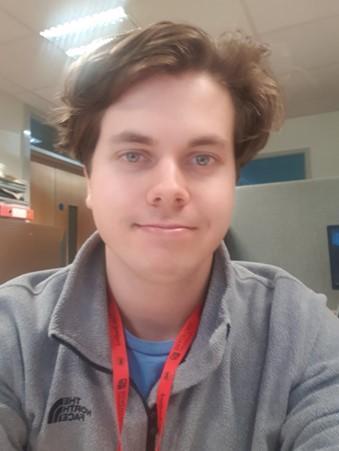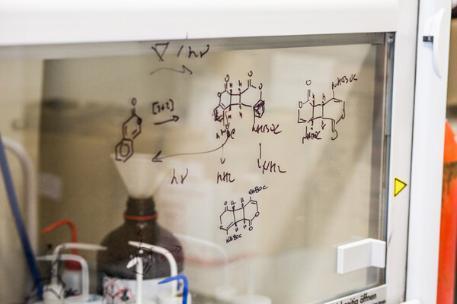Jamie Morton
PhD studentship
Jamie Morton completed his undergraduate and master's degrees at Newcastle University and was also involved in prostate cancer research at Newcastle University’s Centre for Cancer. He started his PhD at the Institute of Cancer Therapeutics in 2022.
His focus at Newcastle University’s Centre for Cancer was “the interaction between cancer DNA repair mechanisms and external signals, such as androgen/oestrogen signalling and DNA damage response elements”. This resulted in his interest in signalling pathways in cancer and their impact upon gene expression and more specifically how the inhibition of elements of one pathway can also alter another pathway in unexpected and interesting ways.
My PhD research
The main axis of my project revolves around hypoxia in cancer. Hypoxic cancer cells represent a subset of cells in solid tumours that are resistant to chemotherapy and other DNA damaging agents. Researchers from the Institute of Cancer Therapeutics identified Senataxin as a key player in this resistance, through its ability to resolve DNA structures called R-Loops. R loops occur normally in cells during their lifetime, however when treated with chemotherapy cancer cells will accumulate R loops which, if left unresolved, will lead to DNA damage. Through continued research, we have found an enzyme (USP11) that controls the destruction of Senataxin. USP11 could be a drug target that would re-sensitise these cells to chemotherapy.
Mitoxatrone is an already available chemotherapy compound that has been previously suggested to act as a USP11 inhibitor. Our plan moving forward is to synthesise and screen derivatives of this drug in the hopes that we can identify suitable compounds that would target USP11 specifically and test their ability to re-sensitise hypoxic cancer cells to chemotherapy.

Jamie Morton, PhD
My plans for the future, post PhD, would be to continue to pursue a career in research whether that be in academia or in the pharmaceutical industry with the hopes that my research could help improve cancer patients' prognoses.
How will this PhD make a difference to you in the future?
Receiving this donor-funded PhD has provided me the opportunity to work in a research environment surrounded by fantastic researchers whom I hope to learn a great deal from. Additionally, I hope that my research will help us in the eventual development of effective treatments for a number of cancers.
This PhD will provide me with a solid foundation of practical research skills, in addition to enhancing my own abilities to design experiments and explore avenues of research. And it will provide me with an introduction to the greater scientific community, giving me the opportunity to interact and learn from a number of experienced persons and gain a greater understanding of research fields across the spectrum of science.

